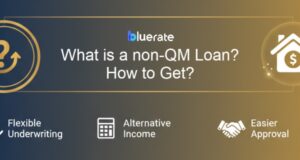Buying a house in Singapore is not a decision you should take lightly. While it may seem like a cliché, purchasing a home is indeed one of the biggest financial commitments you can ever make. Think about it. Unless you have a sizable amount of money saved up and you can pay the costs of acquiring a home out of pocket, you will most likely apply for a home loan and spend at least ten years of your life paying it off.
Perhaps several of your friends bought their first flat, and they are coaxing you to do the same. They may even be giving you pointers on how to secure an affordable housing loan package. Before you get too excited, however, it is probably best to take a step back and assess your situation.
Although it is tempting to take the plunge since you may have been dreaming of buying your own home for years, remember that buying a house is a lot more complex than purchasing almost anything else.. At the very least, try asking yourself the following questions to gauge whether or not you are ready to make this huge financial commitment:
Am I Financially Ready?
The most crucial question you need to ask yourself before buying a residential property in Singapore is whether you are financially ready to do so. Keep in mind that even though you are eligible to take out a home loan to finance 75 per cent to 90 per cent of the purchase price of the property you are eyeing, you still need substantial savings to cover the down payment.
What about the monthly repayments and other recurring costs? Taking out a loan and paying the down payment is just the first part of the process. Upon owning a home, you are obliged to pay your monthly mortgage and other recurring costs, such as home insurance and property tax.
Use an HDB loan calculator to get an estimate of how much you’ll need to pay for your home loan every month. Can you afford to make regular payments? Will your emergency fund remain untouched? If buying a home means you’ll need to take out a personal loan to finance your down payment, or you’ll wipe out your personal and CPF savings to cover repayments, it is probably best to wait until you are financially ready to become a homeowner.
Is It More Advantageous for Me to Rent Than Buy a Home?
Having your own home in Singapore is not always beneficial. That is why you should consider the pros and cons of renting versus buying a house before you start visiting banks to apply for a loan.
For instance, if you are single and do not want to be tied down to one place, renting offers the flexibility you need. The same holds true if you have plans to work overseas or if your job requires you to travel a lot. Ultimately, if it makes more sense to simply rent a place instead of buying your own home, why take on the financial burden of paying for a place you do not really need?
Is My Intention to Buy Based Primarily on My Emotions?
Whether you realise it or not, your emotions can lead you to make poor financial decisions. Perhaps you struggled when you were younger and experienced moving from one place to another? Perhaps your family was forced to live with insufferable relatives? Because of such experiences, you may have developed an intense desire to own a place where you can finally settle permanently. All it takes for a real estate agent to convince you to entertain the idea of buying a home would be to tap into your deep-seated desire for stability.
Do not allow yourself to be manipulated by your emotions if you do not want to make a costly mistake. Keep in mind that you must be prudent and rational when making a decision that can impact your finances and your entire life big time.
Am I Still Paying Off My Debts?
If you are still in the process of repaying major debts, such as education and car loans, you should probably settle them first before seriously considering purchasing a home. Take note that the loan amount you can borrow will depend on your total debt servicing ratio (TDSR), which is the portion of your income used to repay all of your outstanding loans.
The TDSR is a measure introduced by the government to ensure financial prudence among Singaporeans. It is capped at 60 per cent, which means it will be difficult for you to obtain a decent home loan if you are still paying off several debts.
Remember that the less you borrow, the higher your out-of-pocket expenses will be. If you are merely relying on loans to fund your dream house, where are you going to get all the money to pay for your financial obligations if you do not receive the amount you need?
The decision to purchase a home in Singapore is not something you can make on a whim because the wrong choice can negatively impact your life. Instead of adopting the YOLO (you only live once) attitude, you should ask yourself the questions above and take an honest look at your current situation to determine if you can truly take on this huge financial responsibility.












